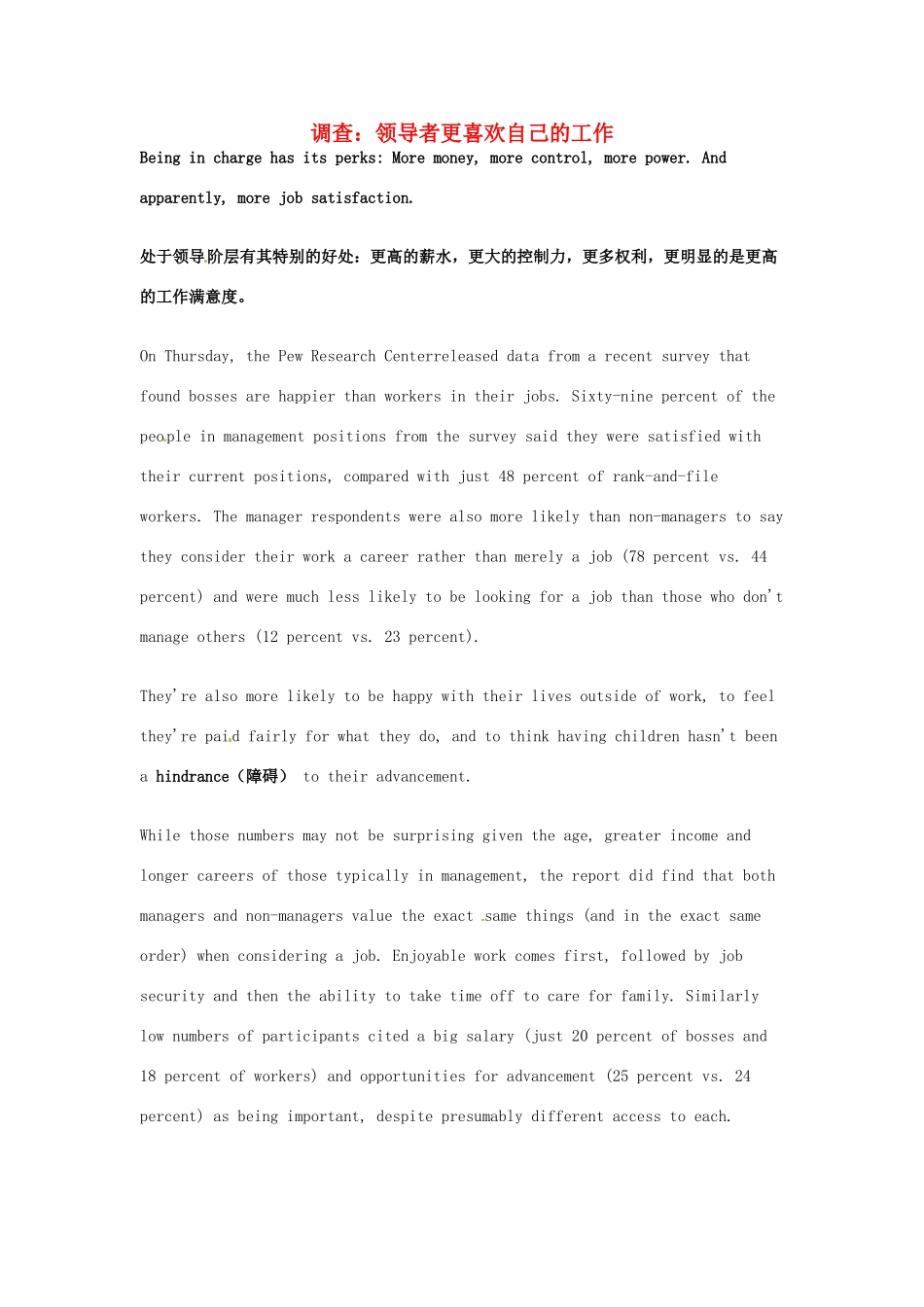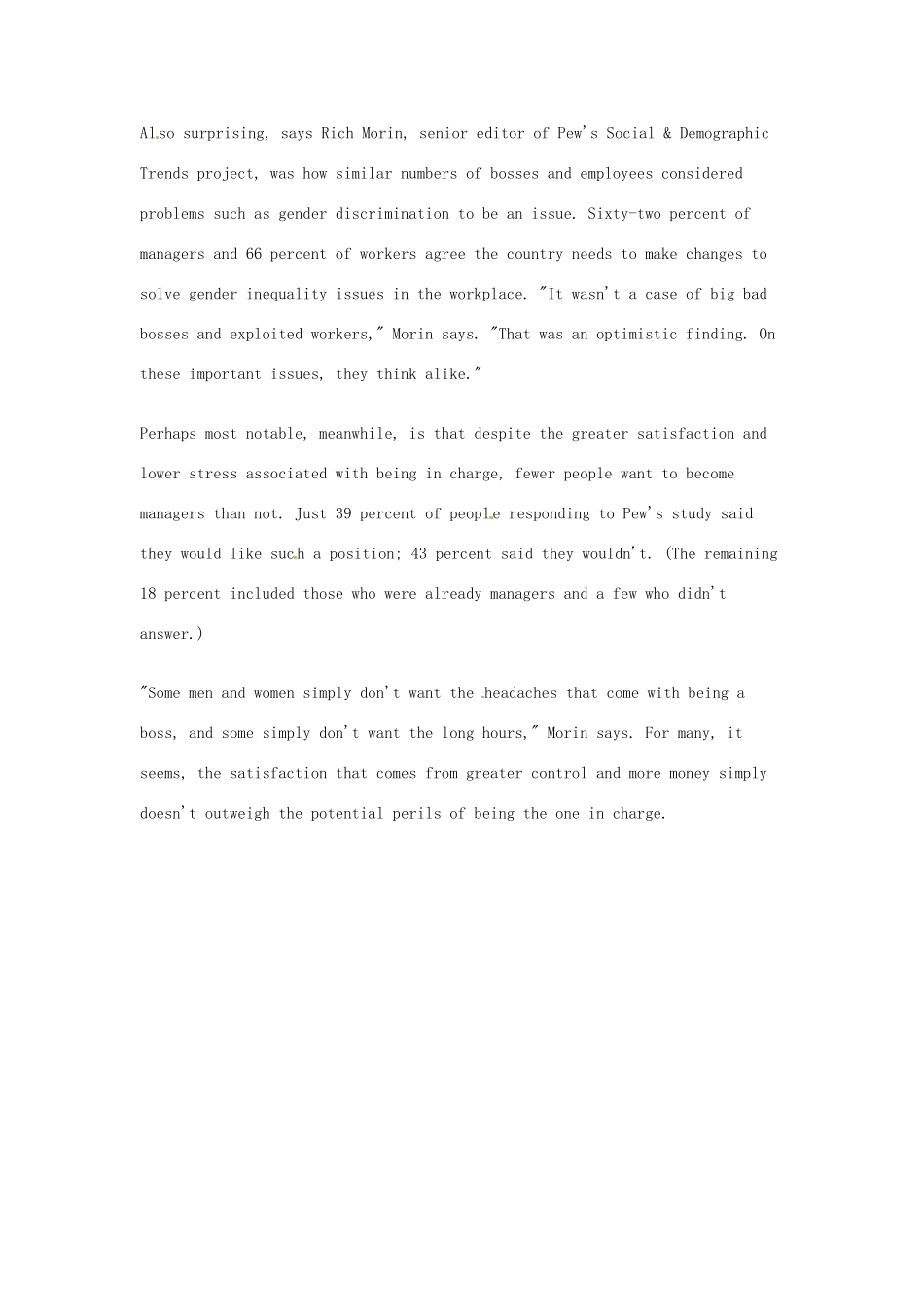调查:领导者更喜欢自己的工作Being in charge has its perks: More money, more control, more power. And apparently, more job satisfaction.处于领导阶层有其特别的好处:更高的薪水,更大的控制力,更多权利,更明显的是更高的工作满意度。 On Thursday, the Pew Research Centerreleased data from a recent survey that found bosses are happier than workers in their jobs. Sixty-nine percent of the people in management positions from the survey said they were satisfied with their current positions, compared with just 48 percent of rank-and-file workers. The manager respondents were also more likely than non-managers to say they consider their work a career rather than merely a job (78 percent vs. 44 percent) and were much less likely to be looking for a job than those who don't manage others (12 percent vs. 23 percent). They're also more likely to be happy with their lives outside of work, to feel they're paid fairly for what they do, and to think having children hasn't been a hindrance(障碍) to their advancement. While those numbers may not be surprising given the age, greater income and longer careers of those typically in management, the report did find that both managers and non-managers value the exact same things (and in the exact same order) when considering a job. Enjoyable work comes first, followed by job security and then the ability to take time off to care for family. Similarly low numbers of participants cited a big salary (just 20 percent of bosses and 18 percent of workers) and opportunities for advancement (25 percent vs. 24 percent) as being important, despite presumably different access to each. Also surprising, says Rich Morin, senior editor of Pew's Social & Demographic Trends project, was how similar numbers of bosses and employees considered problems such as gender discrimination to be an issue. Sixty-two percent of managers and 66 percent of workers agree the country needs to make changes to solve gender inequality issues in the workplace. "It wasn't a case of big bad bosses and exploited workers," Morin says. "That was an optimistic finding. On these important issues, they think alike." Perhaps most notable, meanwhile, is that despite the greater satisfaction and lower stress associated with being in charge, fewer people want to become managers than not. Just 39 percent of people responding to Pew's study said they would like such a position; 43 percent said they wouldn't. (The remaining 18 percent included those who were already managers and a few who didn't answer.) "Some men and women simply don't want the headaches that come with being a boss, and some simply don't want the long hours," Morin says. For many, it seems, the satisfaction that comes from greater control and more money simply doesn't outweigh the potential perils of being the one in charge.

